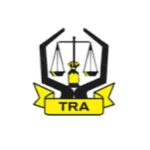
TRA
25 Interview Questions and Answers for Economist II at TRA
These questions and answers will help you prepare for your Economist II interview at the Tanzania Revenue Authority (TRA).
1. Can you describe your experience in conducting macroeconomic research?
Answer: I have conducted macroeconomic research for [X] years, focusing on areas such as GDP trends, inflation, and tax revenue forecasting. In my previous role at [organization], I analyzed economic data to provide insights that informed policy decisions. These skills will be valuable in analyzing Tanzania’s economic landscape and supporting TRA’s revenue collection strategies.
2. How do you evaluate macroeconomic performance, particularly in the context of TRA?
Answer: I assess key macroeconomic indicators such as GDP growth, inflation, exchange rates, and government revenue. Specifically for TRA, I would focus on tax revenue as a percentage of GDP, trends in taxpayer compliance, and sectoral contributions to tax collection. These analyses help TRA optimize its revenue collection strategies.
3. What is your approach to preparing quarterly economic reports, and how do you ensure their accuracy?
Answer: I start by collecting data from reliable sources like the National Bureau of Statistics (NBS), the Bank of Tanzania, and TRA’s internal records. I analyze trends, apply statistical models, and summarize key insights. To ensure accuracy, I cross-check data sources, verify calculations, and review the final report before submission.
4. How would you respond to a parliamentary inquiry regarding tax revenue trends in Tanzania?
Answer: I would prepare a clear, data-backed response in both Swahili and English, outlining revenue trends, factors influencing collections, and policy recommendations. I would ensure the response aligns with TRA’s transparency and accountability standards.
5. What economic research tools and software are you proficient in, and how have you used them in past analyses?
Answer: I am proficient in Stata, EViews, R, and Excel for economic modeling and analysis. I have used these tools for time-series forecasting, regression analysis, and data visualization to inform fiscal policy decisions.
6. Why do you want to work as an Economist II at TRA?
Answer: TRA plays a vital role in Tanzania’s economic development by ensuring effective tax collection. As an economist, I am passionate about using data-driven insights to enhance revenue mobilization, support policy formulation, and contribute to national growth.
7. How do you stay updated on macroeconomic trends that could impact TRA’s operations?
Answer: I regularly review reports from TRA, NBS, the Bank of Tanzania, the IMF, and the World Bank. I also attend economic conferences and follow industry experts to stay informed about emerging trends.
8. What is your experience with public sector economic reporting, and how would it apply to TRA?
Answer: I have prepared economic reports for government agencies, focusing on fiscal performance and policy impacts. At TRA, I would use this experience to generate detailed reports on tax revenue trends, compliance levels, and economic forecasts.
9. How would you assess the impact of current tax policies on Tanzania’s economy?
Answer: I would use econometric modeling and policy impact assessment tools to analyze how tax changes affect economic activity, business investment, and consumer spending. This would help TRA refine its tax strategies.
10. What do you know about TRA’s role in Tanzania’s fiscal system, and how does it relate to economic development?
Answer: TRA is responsible for tax collection, ensuring government funding for infrastructure, education, and healthcare. Effective tax policies enhance revenue mobilization, reduce fiscal deficits, and promote economic stability.
11. What steps do you take to ensure accuracy and reliability in your economic reports?
Answer: I cross-check data sources, validate calculations, and review reports with peers before submission. I also ensure my analysis is based on the most recent and relevant data.
12. Can you describe a complex economic research project you have handled and the outcome?
Answer: I conducted a study on the impact of inflation on tax revenue collection. The findings led to a policy adjustment that improved revenue predictability and minimized budget deficits.
13. How would you present economic data to TRA stakeholders who may not have an economics background?
Answer: I would use simple language, graphs, and charts to present key findings. For example, explaining tax trends through visual representations makes complex data more accessible.
14. What is your approach to forecasting revenue trends for TRA?
Answer: I use time-series analysis, historical data trends, and economic indicators like GDP growth and inflation rates to predict future revenue collections.
15. How do you prioritize research tasks when working under tight deadlines?
Answer: I identify high-priority tasks, use project management tools to stay organized, and ensure timely data collection to meet deadlines.
16. Can you explain an economic concept in Swahili for TRA staff or the general public?
Answer:
“Uchumi ni kama mto; unapohitaji maji zaidi, lazima uwe na vyanzo vingi vya maji. Kwa hivyo, kodi bora huongeza mapato ya serikali bila kuathiri wananchi.”
17. How do you handle conflicting economic data when conducting research and analysis?
Answer: I verify sources, reconcile differences using statistical adjustments, and transparently document assumptions in my reports.
18. What experience do you have in responding to high-level government or institutional inquiries on economic issues?
Answer: I have prepared economic briefs for senior officials and policymakers, ensuring that my analysis is clear, concise, and backed by data.
19. What improvements would you suggest for TRA’s economic reporting process?
Answer: I would recommend automating data collection, improving visualization tools, and integrating AI for predictive analytics.
20. Can you describe a time when your economic research directly influenced a policy or decision?
Answer: My research on tax incentives for SMEs influenced a decision to reduce VAT rates for small businesses, boosting compliance and revenue.
21. How do you ensure that your reports are completed and submitted within TRA’s required deadlines?
Answer: I set clear milestones, prioritize key data sources early, and conduct frequent progress reviews to stay on track.
22. What challenges do you anticipate in this Economist II role, and how would you address them?
Answer: Data gaps and inconsistencies can be challenging. I would address this by using proxies, collaborating with data providers, and ensuring robust data validation.
23. How do you measure the success and impact of your economic analysis?
Answer: I track how my research influences policy decisions, improves revenue collection, or enhances economic forecasting accuracy.
24. What is your experience with Tanzania-specific economic challenges, such as inflation, trade, and tax policy?
Answer: I have analyzed Tanzania’s inflation trends, trade imbalances, and tax revenue fluctuations, identifying policy solutions that enhance economic stability.
25. Why do you believe you are the best candidate for the Economist II position at TRA?
Answer: My strong background in macroeconomic research, tax policy analysis, and forecasting, combined with my ability to communicate economic insights effectively, makes me a strong fit for TRA. I am committed to using my skills to support TRA’s revenue mobilization efforts and contribute to Tanzania’s economic growth.
This structured Q&A format provides clear, professional responses that will help you confidently answer TRA interview questions. Do you need any customization based on your experience?



